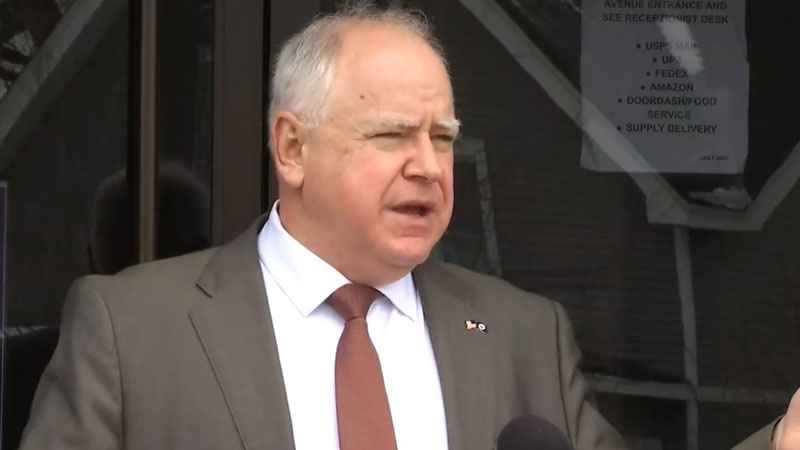Gov. Walz highlights partnerships with community organizations to connect Minnesotans with COVID-19 vaccine
On Tuesday, Gov. Tim Walz joined community leaders at Shiloh Temple International Ministries in Minneapolis to discuss partnerships the state has made with 30 community-based organizations to help connect Minnesotans with the COVID-19 vaccine.
As ‘COVID-19 Community Coordinators,’ these partners will work with the state to ensure people have access to the Minnesota COVID-19 Vaccine Connector and other COVID-19 information specific to their communities, including in multiple languages, according to the governor’s office.
"Last week, we announced the rollout of the Vaccine Connector – a tool to help Minnesotans find out when, where, and how to get their vaccine," Walz said in a statement. "I’m thrilled that we have invested in organizations on the ground to help connect Minnesota’s diverse communities with the vaccine. We are committed to making it as easy as possible for Minnesotans from every community to get the vaccine when it’s their turn."
These coordinators work directly with communities hit hardest by COVID-19, including communities of color, American Indian communities, LGBTQ+ communities and Minnesotans with disabilities. In addition to connecting them to vaccines, they continue to help community members find critical resources to address the impacts of COVID-19, such as employment, food access, housing, child care and legal rights.

Minnesota Gov. Tim Walz. [KSTP]
"We know many communities, including BIPOC communities, face barriers to accessing the COVID-19 vaccine," said Lt. Gov. Peggy Flanagan. "Trusted organizations like these are deeply embedded in their communities and play a vital role in ensuring that folks in every community feel connected to our vaccine network and know how to get vaccinated safely and confidently."
The Minnesota Department of Health’s (MDH) COVID Community Coordinators initiative contracts with 19 culturally specific organizations to serve African American, African immigrant, American Indian, Asian American and Pacific Islander, Latinx and LGBTQ communities in the state.
The governor’s office also said MDH is partnering with the Department of Employment and Economic Development (DEED) to contract with disabilities-centered community-based organizations. MDH is also partnering with the Department of Human Services (DHS) Refugee and Immigrant Resettlement Network to contract with refugee service agencies across the state.
The organizations involved are:
African Career, Education Resources, Inc. (ACER); African Immigrant Community Services (AICS); American Indian Community Housing Organization; Briva Health; CAPI USA; Comunidades Latinas Unidas En Servicio (CLUES); Comunidades Orgainzado el Poder y la Acción Latina (COPAL); Cultural Wellness Center; Department of Indian Work— Interfaith Action of Greater St. Paul; Hispanic Advocacy and Community Empowerment through Research (HACER); Hmong American Partnership; Islamic Association of North America; JustUs Health; Northwest Indian Community Development Center; Phyllis Wheatley Community Center; Stairstep Foundation; Tserha Aryam Kidist Selassie (TAKS); Vietnamese Social Services of Minnesota; WellShare International; BLIND, Inc.; Lighthouse Center for Vital Living; Vision Loss Resources; Access North Center for Independent Living of Northeastern Minnesota; Independent Lifestyles; Metropolitan Center for Independent Living (MCIL); Options: Interstate Resource Center for Independent Living (IRCIL); Southeastern Minnesota Center for Independent Living (SEMCIL); Southern Minnesota Independent Living Entreprises & Services (SMILES); and the DHS Refugee and Immigrant Resettlement Network.
"This is an all-hands-on-deck situation," the governor said during a press conference Tuesday afternoon.
To find a COVID-19 Community Coordinator, click here.